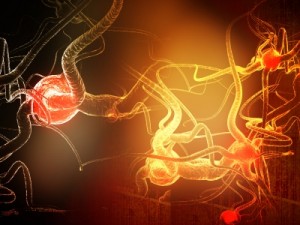Pernicious anemia (PA) and multiple sclerosis (MS) are both autoimmune disorders that cause fatigue, chronic pain, and physical handicaps, but that is where their similarities end. If that’s the case, why are so many doctors quick to diagnose multiple sclerosis before testing for simple vitamin B12 deficiency from pernicious anemia?
Pernicious anemia
Pernicious anemia (PA) is a medical condition that causes vitamin B12 deficiency. Over time, plummeting levels of vitamin B12 cause many debilitating symptoms- muscle pain, numbness, spasms, fatigue- all as a result of diminished red blood cells and impaired neurological functioning.
Without enough vitamin B12 in your system make plenty of healthy blood cells, you wind up feeling constantly tired, unfocused, disoriented, and depressed.
Vitamin B12 is also needed to produce myelin, a substance which protects your nerve cells from harm. That’s why pernicious anemia symptoms such as chronic pain, numbness, tingling in the arms and legs, and mobility difficulties may reveal a weakened nervous system caused by insufficient vitamin B12 levels.
Gradually, depleted vitamin B12 may cause further irreparable damage to the nervous system, in addition to increased risk for stroke, heart attack, and age-related dementia.
Only immediate vitamin B12 supplementation can reverse the symptoms of pernicious anemia, and prevent future relapses.
Multiple sclerosis
Multiple sclerosis also affects the nervous system, causing severe muscle pain, paralysis, and multiple neurological problems, some of which are similar to those experienced with pernicious anemia, only on a much higher level. People with MS struggle to manage relapses their whole lives, as it is a chronic illness that is difficult to control.
While pernicious anemia is easily treated with strict vitamin B12 supplementation, multiple sclerosis is much harder to manage, requiring various medications formulated to relieve specific symptoms.
Pernicious Anemia Misdiagnosed as MS- It Happens!
What causes multiple sclerosis?
Scientists aren’t positive exactly what causes multiple sclerosis, but they do know that Caucasian females are the highest risk factor for MS.
Like pernicious anemia, multiple sclerosis symptoms may be part of an autoimmune disorder. Scientists believe that MS may be triggered by an infection, which the immune system begins to attack. After fighting off the infection, your body continues to attack, this time mistaking your nerve cells’ myelin- the same substance supported by vitamin B12- as a threat. So the cycle continues, creating damage to the central nervous system and prolonging debilitating symptoms of multiple sclerosis.
This article continues in Part 2, including symptoms of multiple sclerosis and diagnosis…
Your turn!
Do you have any questions or suggestions? Please leave your comments below.
Share with your friends!
If you found this article helpful, then please share with your friends, family, and coworkers by email, Facebook, or Google+.
Like this? Read more:
Pernicious Anemia and Vitamin B12 Deficiency: Which Causes Which?
Can Vitamin B12 Repair Nerve Cells?
15 Chronic Pain Causes and 15 Treatments (Vitamin B12 is one)
Sources:
Image courtesy of A Health Blog/flickr










